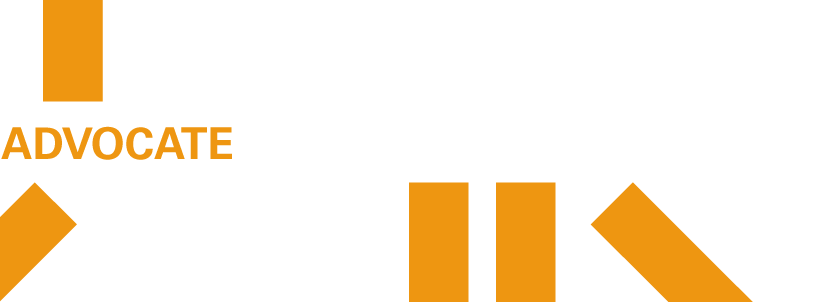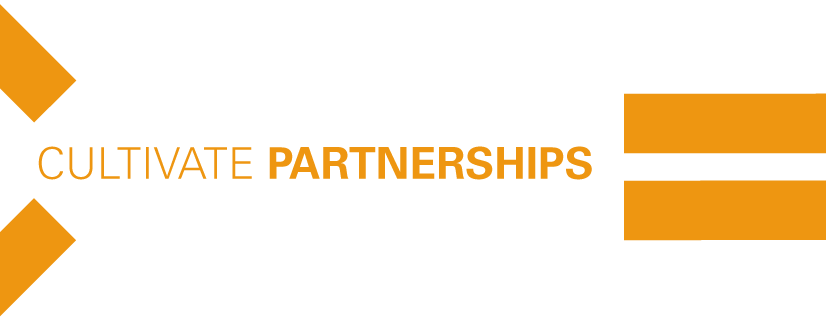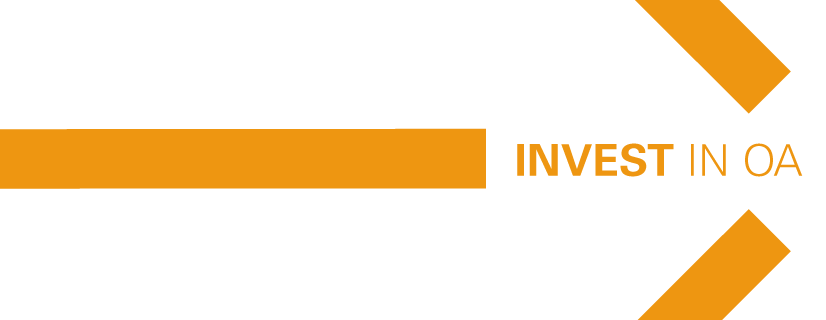COLLABORATE
Think globally, act locally. The global nature of research and publishing requires that the transformation to open access be a collaborative, global effort, while embracing local practices and preferences.

- Researchers, talk with colleagues in your field and the Administrators of your institution about the Benefits of the OA2020 transformation and encourage them to take action.
- Librarians, take stock of your key role in driving the transformation, prepare and present a business case to your Administrators supporting your plan for divesting of subscriptions and investing in open access.
- Funders and Administrators, consider the scientific and financial impact a large-scale transformation of today’s scholarly journals could have for the research you are supporting and endorse OA2020.
- Publishers, reach out to the OA2020 Community to explore ways to pilot and promote your OA business models!
We encourage all OA2020 supporters to promote the OA2020 Initiative within their networks and share their perspectives and best practice. We also welcome your active participation in the OA2020 Community.
- Share your experiences and resources. Send us your OA2020 Roadmap and Resources to be featured here or exchange a link to your own website.
- Tell us about your pilot projects and OA publishing initiatives so we can promote them here.
- Volunteer as a national or regional contact point in the OA2020 network.
Please contact us if you have materials and ideas to share, need more support or want to get involved!

OA2020 seeks to engage all stakeholders involved in scholarly publishing, in particular the academic and scientific communities, universities, research institutions, funders, libraries and publishers in transformative actions to achieve a rapid and efficient transition for the benefit of scholarship and society at large.
The Open Access movement is made up of diverse initiatives that share a common vision of making open the default in scholarly communications. Below is just a sampling of initiatives whose efforts focus on topics ranging from advocacy to infrastructure. As institutions withdraw their financial support of the paywall system, this creates opportunities for greater investment in other forms of open dissemination of scholarly outputs and the infrastructure and initiatives supporting these efforts. By working together we can create synergies to propel the Open Access movement forward, faster.
We welcome and encourage partnerships!
SPARC, https://sparcopen.org/
SPARC is a global coalition committed to making Open the default for research and education. SPARC empowers people to solve big problems and make new discoveries through the adoption of policies and practices that advance Open Access, Open Data, and Open Education.
OSI, http://osinitiative.org/
The Open Scholarship Initiative (OSI) is a global collaborative effort which aims to build a sustainable, robust framework for direct communication and cooperation among all scholarly publishing stakeholders, in order to shape the future of scholarly communication, beginning with scholarly publishing and the issues that surround it, to support a climate for finding common understanding and workable solutions and to help this stakeholder community move toward these solutions together.
OpenAPC, https://www.intact-project.org/openapc/
The INTACT Open APC initiative releases datasets on fees paid for open access journal articles by universities and research institutions under an open database license to achieve transparent and reproducible data for cost monitoring and analysis of fee-based open access publishing across institutions and publishers.
ESAC, http://esac-initiative.org/
The ESAC initiative was born out of a 2013 International workshop organized in collaboration the German Research Foundation (DFG), PLOS and Co-Action Publishing. ESAC pursues the development of good practice and service standard guidelines with regard to the workflows underlying transitional (offsetting) agreements in order to ensure the next step in their evolution toward a fully open access environment.
Fair Open Access Alliance, https://fairopenaccess.org
The Fair Open Access Alliance is an overarching organization aimed at coordinating efforts toward sustainable open access scholarly publishing, following the principles of Fair Open Access.
DOAJ, https://doaj.org/
DOAJ is a community-curated list of open access journals and aims to be the starting point for all information searches for quality, peer reviewed open access material. The aim of the DOAJ is to increase the visibility and ease of use of open access scientific and scholarly journals, thereby promoting their increased usage and impact.
Open Research Central, https://openresearchcentral.org/about,
Open Research Central is a portal through which research in any field can be submitted for formal publication on one of the open research publishing platforms. These platforms are currently operated by F1000 and use a model of immediate publication followed by transparent invited peer review, and require the inclusion of all supporting data.
ArXiv, https://arxiv.org/
Started in August 1991, arXiv.org is a highly-automated electronic archive and distribution server for research articles maintained and operated by the Cornell University Library with guidance from the arXiv Scientific Advisory Board and the arXiv Member Advisory Board, and with the help of numerous subject moderators.
Initiative for Open Citations, https://i4oc.org
The Initiative for Open Citations I4OC is a collaboration between scholarly publishers, researchers, and other interested parties to promote the unrestricted availability of scholarly citation data.
Metadata2020, http://www.metadata2020.org/
Metadata 2020 is a collaboration that advocates richer, connected, and reusable, open metadata for all research outputs, which will advance scholarly pursuits for the benefit of society.
Oapen Foundation, http://www.oapen.org/home
The OAPEN Foundation is a not-for-profit organisation based in the Netherlands, with its registered office at the National Library in The Hague. OAPEN is dedicated to open access, peer-reviewed books. OAPEN operates two platforms, the OAPEN Library (www.oapen.org), a central repository for hosting and disseminating OA books, and the Directory of Open Access Books (DOAB, www.doabooks.org), a discovery service for OA books.

Business Models
We also collaborate with the publishing community, promoting pure gold open access business models and piloting new, transformative business models that are fair, transparent and sustainable. We feature some examples here.
Bioline, http://www.bioline.org.br/
Fair Open Access Alliance, https://www.fairopenaccess.org/
Free the Science, http://www.electrochem.org/free-the-science
Knowledge Unlatched, http://www.knowledgeunlatched.org/
Language Science Press, http://langsci-press.org/opendata
Lever Press, https://www.leverpress.org/
Luminosoa, https://www.luminosoa.org/
Libraria, http://libraria.cc/why/how
LingOA Linguistics in Open Access, http://www.lingoa.eu/
Open Access Network, http://openaccessnetwork.org/
Open Library of Humanities, https://www.openlibhums.org/
SciELO, http://www.scielo.org
ScienceMatters AG, https://www.fairopenaccess.org/
SciPost, https://scipost.org/
SCOAP3, https://scoap3.org/
SCOSS, http://scoss.org/
Stanford Encyclopedia of Philosophy, https://plato.stanford.edu/about.html
Subscribe to Open, https://www.annualreviews.org/page/subscriptions/subscribe-to-open
TOME, https://www.arl.org/focus-areas/scholarly-communication/toward-an-open-monograph-ecosystem
We invite you to contact us to share news of other transitional business models you are piloting.


